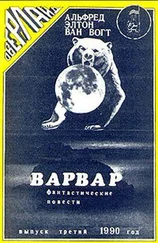
Is the change in me due to China? I always had a weakness for the tiger. When I saw one, it stirred up something in me, and at once I was one with it.
But yesterday I was at the Great World . I saw a tiger that was near the entrance (a fine tiger), and I perceived that it was a stranger to me. I perceived that the tiger has the head of an idiot, passionate and monomaniacal. But the roads that each creature follows are so little known that the tiger might all the same arrive at wisdom. One sees, in fact, that he has the air of being perfectly at ease.

Today, perhaps for the thousandth time in my life, I watched children playing (white people’s). The first pleasure the child has in the exercise of his intelligence is not derived from his judgment nor from his memory.
No, it is from ideography.
They put a board on the ground, and that board becomes a ship, they agree that it is a ship; they lay a smaller one beside it, which becomes a gangway, or bridge.
And then (what is still more curious, several of them agree), an irregular and fortuitous line of light and shade becomes the shore, and maneuvering according to their signs, embarking, disembarking, standing out to sea, while none but the enlightened would guess what it was all about: that this is a ship, here the bridge, that the bridge is raised… and all the complications (and these are innumerable) in which they are involved as they go along.
But the suggestion is there, evident to those who have accepted it, and it is the suggestion, and not the thing, that delights them.
The ease with which it is manipulated appeals to their intelligence, for the actual things are much more awkward to handle. In the present case, it was a complete demonstration. Those children were playing on the deck of a ship.
It is curious that this pleasure in suggestions was for centuries the great pleasure of the Chinese and the very kernel of their mental and general development.
1 ‘The Evolution of Chinese Writing,’ Owen. p. 8, fig. 1 .
2 The Chinese has always wanted UNIVERSAL AGREEMENT where heaven and earth MAY BE IN A STATE OF PERFECT SERENITY and where all beings REACH THEIR COMPLETE DEVELOPMENT.
A man who was plotting to stir up the people said: ‘The Emperor is no longer IN HARMONY WITH HEAVEN.’ At these words, the peasants, horror-stricken, and the nobility and everybody, rushed to take arms… and the Emperor lost his throne .
3 In war, he follows readily the precept: ‘Hesitating whether to advance one inch, I prefer to retreat one step.’
4 ‘The Chinese Idea of the Second Self,’ by E. T. C. Werner .
5 It is believed that the Chinese swarm because they have a great many children. Not at all; they have a great many children because they like to swarm … and to occupy space. They like the general effect, not the individual; the panorama, not the single object .
6 He copies without a single mistake and with no previous experience a Paris gown. The Museum in Pekin contains thousands of plants made of stone, in various colours, pots of flowers, imitations that one can hardly detect. The Chinaman prefers them to natural flowers. He also copies shells and stones. He copies lava in bronze. He places in his garden ARTIFICIAL CINDERS MADE OF CONCRETE.
7 The Chinaman can negotiate anything: an insult, an army, a city, a sentiment and even his death. He trades his conversion for a watch, and his death for a coffin (for a good wooden coffin, coolies have been known to have themselves executed in the place of condemned persons richer than they). To the first Portuguese Catholics, eager to convert the heathen, the Chinese offered to trade twelve hundred baptisms for a cannon. A good mortar was worth three thousand of them .
8 I notice with Giles that Herbert Spencer had thought of this, exactly this. Yet a philosopher. But the philosopher of a nation of shopkeepers is more profoundly shopkeeper than philosopher, just as a hunting dog is not so much hunting dog as he is dog .
9 When put to the test, they again became invincible soldiers .

“It is because we are in Paradise that everything in this world hurts us. Outside of Paradise, nothing embarrasses for nothing matters.”
I should like to find myself excused by these charming words of Komachi, the Japanese poetess, for having had unfavorable impressions of Japan.
What the Japanese lack is a great river. ‘Wisdom accompanies rivers,’ says a Chinese proverb. Wisdom and peace. They have nothing in the way of peace, but instead a volcano, a majestic mountain, no doubt, but none the less a volcano, that inundates them regularly with mud, lava and disasters.
Not only is a great river lacking, but tall trees and wide spaces. I covered twelve hundred kilometers in vaunted provinces of Japan without seeing any fine trees. I know very well that fine landscapes rarely frequent the railways, but all the same…
Japan has a climate that is damp and treacherous. Nowhere in the world is there so much lung trouble.
The trees are sickly, puny, meager, rising feebly, growing with difficulty, fighting against adversity, and tortured as soon as possible by man in order to appear still more dwarfish and miserable.
Japanese bamboos: sad, worn-out things, gray and with no chlorophyl; Ceylon would not have them as reeds.
Anything that is not mediocre finds no friends here. The cedar must hide behind the sickly cherry tree, the sickly cherry tree behind the plum tree in a pot, the plum tree in a pot behind the thimble-like pine.
The men are ugly, with no sparkle — they are sad, wasted and dry, with the look of petty clerks without a future, of corporals, subordinates, servants of Baron X. and of Mr. Z. or of the papaland 1… with little pig eyes and decayed teeth.
The women look like servants (always service), the young ones like pretty soubrettes.
They are stocky, short, and above all hefty, and they are all loins from leg to shoulder. The face is sometimes pretty, but the prettiness lacks purpose and emotion; the head is always so big, big with what? with emptiness? why such a big head, for such a small physiognomy and a still smaller expression?
The same in character as in appearance: a great indifferent, insensitive blanket and just a trifle touchy and sentimental (like the military).
Little superficial bursts of laughter like a charwoman, eyes that disappear as though they were sewn up, clothes like a humpback, a fussy way of doing their hair (the geisha’s style of hairdressing), achieved by calculations, labor, and symbolism — the whole effect completely silly.
An armor compressing and flattening the breasts with a cushion in the back, painted and powdered one hundred per cent, she embodies the unfortunate and typical creation of this nation of esthetes and sergeants that could leave nothing, no, nothing, to its natural impulse.
Gray houses, with empty, icy rooms, constructed and measured according to a fixed, uncompromising rule.
Streets like a seaside resort with garlands of little flowers or of little colored lamps. A useless, impermanent look about it. That white, beachlike side of existence.
Identical, expressionless cities resounding with motor-horns. Shrieking like the devil.
A country which, though full to bursting, looks as if it had nothing in it; where neither men nor plants nor houses seem to have any foundation or scope.
Читать дальше














